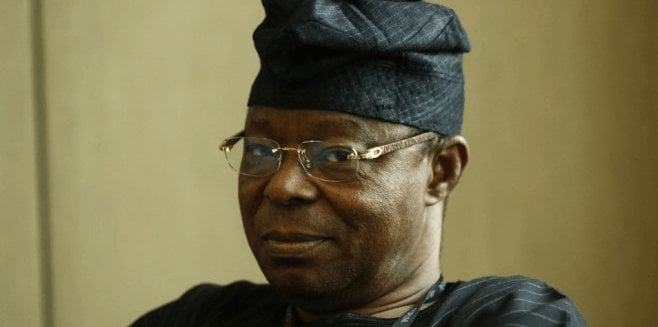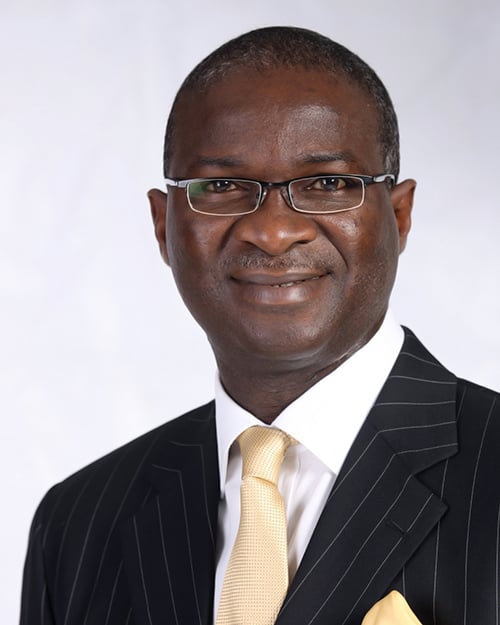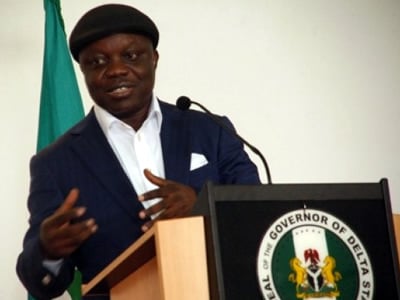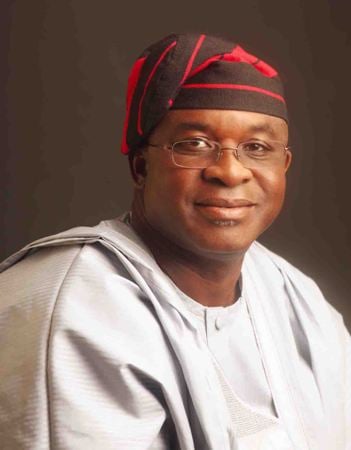Oba Otudeko, former chairman of FBN Holdings
A federal high court in Ikoyi, Lagos, has fixed March 17 to rule on the application filed by Oba Otudeko, the chairman of Honeywell Group.
Otudeko is challenging the court’s jurisdiction to hear the case filed against him by the Economic and Financial Crimes Commission (EFCC).
The EFCC filed a 13-count charge against Otudeko, alongside Stephen Onasanya, a former group managing director of the First Bank of Nigeria (FBN); Soji Akintayo, ex-board member of Honeywell Flour Mills plc; and Anchorage Limited, a company linked to the chairman of Honeywell Group.
The anti-graft agency accused Otudeko and the other defendants of obtaining tranches of loans—N12.3 billion, N5.2 billion, N6.2 billion, N6.1 billion, and N1.5 billion—from First Bank under the pretence that the funds were obtained by some firms.
Advertisement
At the resumed hearing on Thursday, Rotimi Oyedepo, counsel to the EFCC, informed the court that the prosecution had complied with the directive to serve the defence with the charges and proof of evidence.
But Otudeko’s counsel, Wole Olanipekun, notified the court of a fresh application from his client, challenging the jurisdiction of the court to hear the case.
Olanipekun said the application was served on the prosecution on January 29, 2025.
Advertisement
The same application was also filed for the other defendants by their respective counsel.
Confirming the development, the prosecution counsel argued that the hearing on the applications could not go on due to Otudeko’s absence in court.
He told the court that the defendants in their applications are seeking to stay arraignment and also for outright acquittal.
Oyedepo submitted that the defendants ought to have been arraigned before any application is heard.
Advertisement
“In the absence of the first defendant, we may not be able to take the plea. We want an undertaking from the first defendant to know when he can come so that we can take the arraignment,” he said.
However, counsel for the third defendant prayed the court to proceed with the hearing of the application.
He added that the absence of the first defendant is immaterial to the hearing of the application.
“The usual thing is to proceed with the application; however, the prosecution said they cannot proceed because of the absence of the first defendant,” the lawyer said.
Advertisement
“The authorities support that an application can be heard even in the absence of the defendant. Jurisdiction is very rife, and the law is clear: arraignment before an application will be prejudicial to the case.”
His submissions were adopted by counsel for the fourth defendant.
Advertisement
In his response, prosecution counsel noted the application of the first, third, and fourth defendants, urging the court to hear and determine the matter of jurisdiction and sundry prayers contained.
“The approach by the defence is taking us back to Egypt, where we have left. The application is incurably defective. It is dead on arrival. I should not dignify an illegality. The law says you can’t raise it,” Oyedepo said.
Advertisement
“I urge the court to adjourn for arraignment, and then after the plea of the defendant, objections can be raised. Except there is an amendment to section 396 of ACJA, I urge your lordship not to accede to the request of the defence.
“No private citizen, whether corporate or entity, has the requisite power to condone criminal allegations or compound an offence. It cannot be said that there is no prima facie case.
Advertisement
“The provision of 396(2) divests my lord of the requisite power to hear an application challenging the jurisdiction of the court or charge before the plea is taken. Those prayers cannot be entertained because the law says so.”
After listening to the arguments, Aneke adjourned till March 17 for ruling on the applications.
Add a comment







